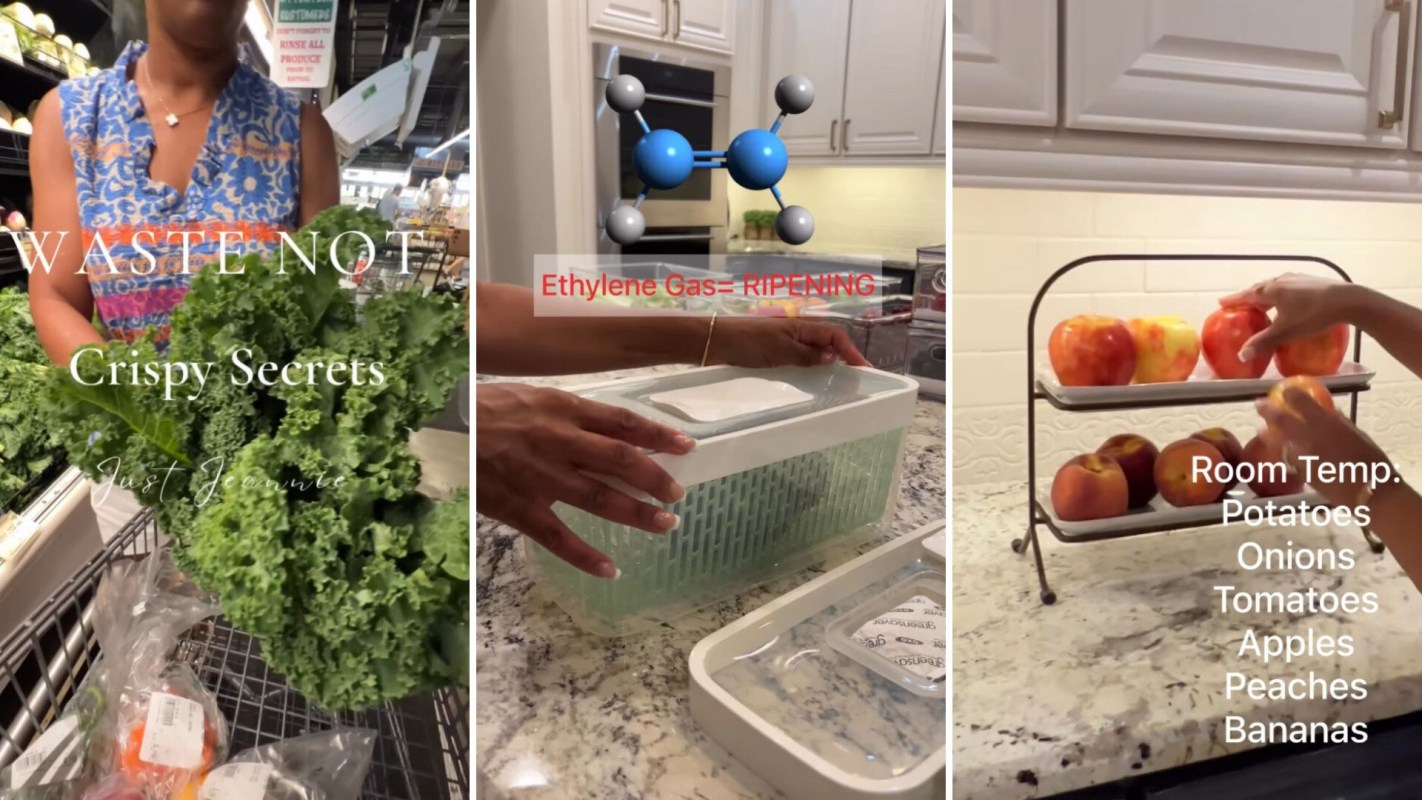If you spend your hard-earned money on fresh produce, you probably hate to see it wasted at the end of the week. Sometimes, as much as we try, there are always some fruits and veggies that go bad before we can eat them.
Luckily, Instagrammer Dr. Jeannie Jacobs (@jeanniejacobs) has a slew of tips to keep your produce fresh for longer while saving money and the planet.
The Scoop
The first step starts before you even put your groceries in your fridge. Jeannie advises to keep your fridge at 34-40 degrees, which is the perfect temperature for produce. She also says not to fully fill your fridge if you can, as a slightly empty fridge is cooler than an overstuffed one.
If you have crisper drawers in your fridge, monitor their humidity. Leafy veggies, like kale and lettuce, need more humidity, while fruits and other vegetables need less. For some fruits and veggies, storing them outside the fridge at room temperature is actually best.
Also keep in mind that fruits and veggies should be stored separately. Fruits release ethylene gas, which speeds up ripening of nearby produce. Jeannie says ethylene gas absorbers are a must to mitigate any overripening. Plastic bags also cause produce to go bad quicker.
Don't forget to clean your fridge, too. Not only does this remind you of all the food you have in there, but it also keeps the fridge running at peak performance.
Lastly, Jeannie advises to reduce waste by not overbuying produce. Follow her golden rule of "first in, first out," and you'll be on your way to reducing food waste.
🗣️ Would you buy juice or yogurt made with bruised or misshapen fruit?
🔘 If I couldn't tell the difference 🤔
🔘 If it were cheaper 💰
🔘 If it were healthier 🍎
🔘 I'd never buy it 🚫
🗳️ Click your choice to see results and speak your mind
How it's helping
Cutting down food waste is one of the best ways to save money and reduce your environmental impact. In fact, 30% of all food in the United States is wasted at the consumer level.
When food is wasted, money, time, and resources are also wasted. In the United States, it's estimated that wasted food costs on average $7.77 per person. Food waste also impacts the environment, as trashed food means that all the fertilizers, land, energy, and water used to grow the food was wasted as well.
What everyone's saying
As many people struggle to keep their produce fresh, it's easy to see why Jeannie's followers are loving these tips. One commenter said: "So much good information! Thank you!" Another admitted: "Thanks for this info … I've been doing it all wrong!"
Others are sharing their own tips, like one commenter who said they buy "bins and a turntable and reorganized [their] fridge a few months ago."
Join our free newsletter for easy tips to save more, waste less, and help yourself while helping the planet.








